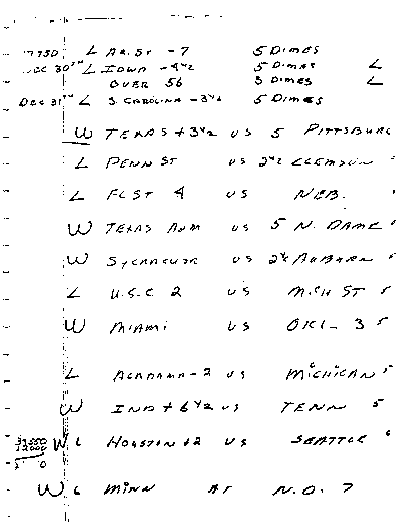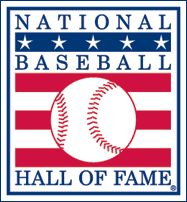The news is all abuzz about how ESPN found betting slips that indicated Pete Rose bet on the Cincinnati Reds while he was playing with them. That news has caused the staunchest Rose advocates to reconsider whether he should be allowed in Cooperstown or not. While the advocates seemed to be willing to forgive his wagers on the Reds while he was manager, most of them also believe that betting as a player is different. Many who were his proponents even last week were in the media saying he should fold since betting on games as a player violates every rule in the book.
Of course the rule that you don't bet on your own team is common throughout the world.
In England, for example, where sports betting has been legal since 1961 and bets are allowed on anything from soccer to darts to who will be the next Pope, there is one rule in place and that is that players, managers or coaching staff cannot bet on the result or progress of any match or competition in which they are participating in or have any direct influence over. Originally the rule applied to players only but was expanded to include pretty much anyone in the game. And a new rule introduced by the FA, the governing body for soccer in the UK prohibits players, managers or coaching staff from betting on any soccer competitions whether they are participants or not. The rule was introduced in light of a huge cricket scandal in England, but the FA Said these rules were necessary to ensure players always have a "clear motivation to win the game, without conflicting objectives". The press release by the FA when they introduced that new rule added that "it is vital to protect and be seen to protect, the integrity and reputation of the game."
 These rules of course only apply to team sports. Golfers will certainly bet on themselves when they head over to St. Andrews for the British Open and horsemen will always be allowed to bet on their own horses everywhere including in the United States. In fact, when they don't bet on their horses, many owners and trainers are asked why they didn't place a wager, hinting that they have no faith in their horse. And of course athletes like Phil Mickelson and Floyd Mayweather will bet heavily on other sports, without any derision or shame.
These rules of course only apply to team sports. Golfers will certainly bet on themselves when they head over to St. Andrews for the British Open and horsemen will always be allowed to bet on their own horses everywhere including in the United States. In fact, when they don't bet on their horses, many owners and trainers are asked why they didn't place a wager, hinting that they have no faith in their horse. And of course athletes like Phil Mickelson and Floyd Mayweather will bet heavily on other sports, without any derision or shame.
I talked to a contact who is involved in sports law and who I have reached out to before and asked if he believed this should spell the end for Pete Rose and his Cooperstown aspirations. He indicated that in his opinion the knowledge that Rose bet on baseball as a player is no big deal given he already confessed to betting as a manager. He stated that both he and his colleagues agree that as long as he only bet on his own team there should be no difference whether he did so as a manager or a player. If, however, he bet against the Reds even once in either situation then "they should lock him up and throw away the key as far as having any connection to baseball goes." The contact also explained why in his view the so called sin of betting on one's own team is far worse as a manager than as a player.
"Let's be realistic if the Reds are down 2-1 heading into the 9th inning then what could Pete Rose do as a player to help the Reds win? Is he going to try harder lol? As a player one's options are limited. As a manager, however, it's different. If Rose made a large enough bet on the Reds and they are down 2-1 in the 7th inning with a runner on base maybe he would put in his closer to take them out of that inning and pitch another inning or two if they tie or go ahead in the game jeopardizing the following games which he would then decide not to bet on because he doesn't have the closer. Maybe he would put in a bit player with speed and tell him to "take it on the ass because it hurts less", and so on. In fact he could have made many reckless decisions that sacrificed the team's chances of winning future games all for the sake of winning that one. But unless a group of players conspire to lose as a group the way the White Sox did in 1919 there's not much one player can do to influence the game."
But the contact also pointed out that Major League Baseball rule 21 (d) on misconduct eliminates Rose or any other player that bets from getting reinstated. The exact wording of the rule is as follows:
(d) BETTING ON BALL GAMES. Any player, umpire, or club official or employee, who shall bet any sum whatsoever upon any baseball game in connection with which the bettor has no duty to perform shall be declared ineligible for one year.
Any player, umpire, or club or league official or employee, who shall bet any sum whatsoever upon any baseball game in connection with which the bettor has a duty to perform shall be declared permanently ineligible.
That said section f of the same section on misconduct should eliminate anyone that threatens the integrity of the game yet last week Alex Rodriguez and Major League Baseball were celebrating Alex Rodriguez's 3,000th hit despite the fact he admitted to using steroids. And the game has constantly forgave and celebrated wife beaters, racists, mobsters and in some cases a combination of them all.
For those unfamiliar with rule 21(f) it states the following:
(f) OTHER MISCONDUCT. Nothing herein contained shall be construed as exclusively defining or otherwise limiting acts, transactions, practices or conduct not to be in the best interests of Baseball; and any and all other acts, transactions, practices or conduct not to be in the best interests of Baseball are prohibited and shall be subject to such penalties, including permanent ineligibility, as the facts in the particular case may warrant.
 So there's no question that Rose bet on baseball as a player, but that should have no influence on what Rob Manfred decides to do with Rose's attempts to be reinstated. If Manfred was considering reinstating Rose to allow him into Cooperstown prior to ESPN's latest revelations, then the new revelations should change nothing. Manfred should do so based on the fact that Rose still is the all-time hit leader for Major League Baseball with 4,256 hits, and it's doubtful anyone will ever come close to that mark again. If, however, Manfred is going to say that this latest revelation was the straw that broke the camel's back, then he should be consistent and consider removing anyone from the game and from the Hall of Fame whose misconduct jeopardized the integrity of the game.
So there's no question that Rose bet on baseball as a player, but that should have no influence on what Rob Manfred decides to do with Rose's attempts to be reinstated. If Manfred was considering reinstating Rose to allow him into Cooperstown prior to ESPN's latest revelations, then the new revelations should change nothing. Manfred should do so based on the fact that Rose still is the all-time hit leader for Major League Baseball with 4,256 hits, and it's doubtful anyone will ever come close to that mark again. If, however, Manfred is going to say that this latest revelation was the straw that broke the camel's back, then he should be consistent and consider removing anyone from the game and from the Hall of Fame whose misconduct jeopardized the integrity of the game.
The truth of the matter is that Rose had a gambling problem which he never got help for because he didn't admit to nor was ever challenged on. And any addictions councillor will say that problem gambling is as much a disease as drug use or drinking to excess. But Major League Baseball was only too happy to give multiple chances to players with other addictions such as Darryl Strawberry. And again it has to be stressed that Major League baseball has allowed back Alex Rodriguez and will undoubtedly welcome back other admitted steroid users once their suspensions are over.
If Manfred wants to contend that Rose can't be reinstated because he possibly bet against the Reds or somehow compromised the outcome of games then the solution is simple – go back through all the betting slips that ESPN has uncovered (and no doubt there's many more that exist) and see if he ever bet against the Reds as a player or as a manager. And for the games that he did bet heavily on the Reds check and see if Rose did anything unusual as a manager or a player that would indicate that he somehow influenced the outcome of the games.
In the 1989 John Dowd report, where he released comments on the scandal, one particular comment he made was used by Bud Selig and media types and highlighted why Rose had to be made an example of:
"Betting on baseball by a participant of the game is corrupt because it erodes and destroys the integrity of the game of baseball. Betting also exposes the game to the influence of forces who seek to control the game to their own ends. Betting on one's own team gives rise to the ultimate conflict of interest in which the individual player/bettor places his personal financial interest above the interests of the team."
So here's a great opportunity to check and prove whether Dowd was right or wrong. All the bet slips are available, all the replays are available and Las Vegas shops can indicate whether there was any other unusual action on those games. If the answer is no then it's incumbent on Manfred to explain why Rose's did was more damning to the game than what Ty Cobb or Alex Rodriguez did. And while he's at it Manfred should also explain why it's ok for Major League Baseball to allow players and managers to bet on Daily Fantasy sports. Major League Baseball has always had a double standard when it comes to betting. Let's hope Manfred keeps an open mind and gives a reasonable explanation if he chooses to keep Rose suspended over the latest revelations.
Read insights from Hartley Henderson every week here at OSGA and check out Hartley's RUMOR MILL!






































